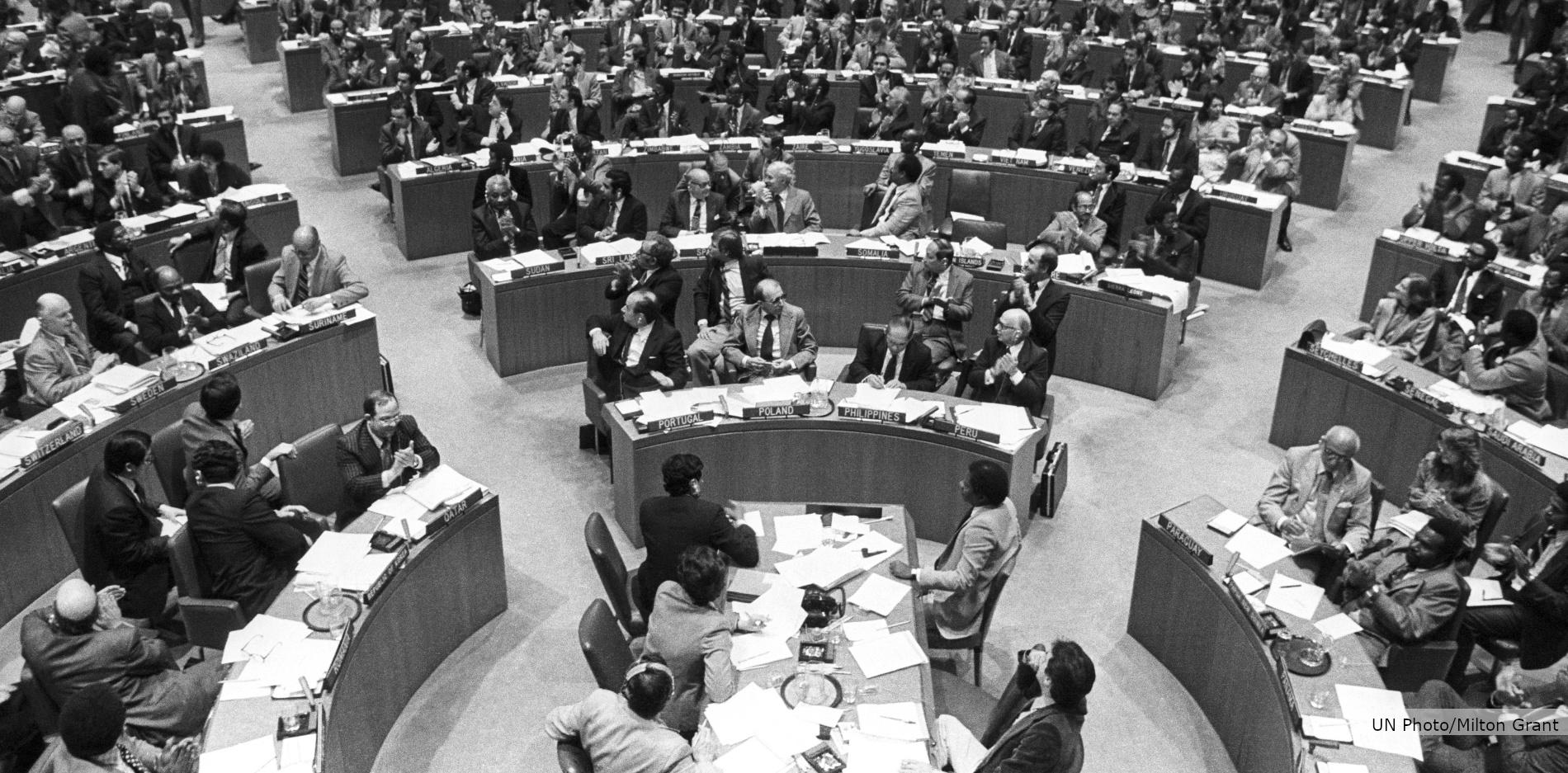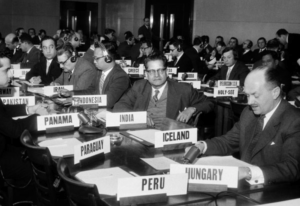The United Nations Convention on the Law of the Sea at 40

The making of UNCLOS
Ever since humankind managed to venture out on the seas, the freedom of this seemingly limitless space has been challenged by domination from land, often leading to conflict among seafaring nations. During the twentieth century, the situation called for the codification of the customary law of the sea for the benefit of all nations. These efforts led to the adoption in 1958 of the four Geneva Conventions, soon largely to be overtaken by State practice, culminating in 1982 in the adoption of the United Nations Convention on the Law of the Sea (UNCLOS), which entered into force in 1994.
At present, UNCLOS has almost achieved universality. As of July 2021 it has been ratified by 168 parties, which includes 167 States (164 United Nations member States plus the UN Observer State Palestine, as well as the Cook Islands and Niue) and the European Union. All parties to UNCLOS are automatically members of ISA. An additional 14 UN Member States have signed it, but not ratified it.

1 March 1958 – United Nations Conference on the Law of the Sea, meeting of the Fifth Committee, Geneva, Switzerland.

17 March 1960 – Opening meeting of the Second United Nations Conference on the Law of the Sea, Geneva, Switzerland

30 April 1982 – UNHQ – Third UN Conference on the Law of the Sea. The Conference adopted the text of the Convention by 130 in favour to 4 against, with 17 abstentions.
UNCLOS was opened for signature on 10 December 1982 in Montego Bay, Jamaica, after more than 14 years of negotiations involving more than 150 countries from all regions of the world and representing all legal and political systems as well as reflecting the whole spectrum of socio-economic development. On 16 November 1994, UNCLOS entered into force, establishing ISA as the trustee of the mineral resources of the deep seabed which are designated as the common heritage of humankind.
To address certain difficulties with the seabed mining provisions contained in Part XI of UNLOS, which had been raised, primarily by the industrialized countries, the UN Secretary-General convened in July 1990 a series of informal consultations which culminated in the adoption, on 28 July 1994, of the Agreement relating to the implementation of Part XI of the United Nations Convention on the Law of the Sea of 10 December 1982 (1994 Agreement).
UNCLOS at 40: achievements and challenges
Delegates talk about UNCLOS, its achievements over the past 40 years and possible challenges it may face.
H.E. Mr. Viliami Va’inga Tōnē, Permanent Representative of Tonga to the United Nations and to ISA
H.E. Mr. Viliami Va’inga Tōnē, Permanent Representative of Tonga to the United Nations and to ISA
H.E. Mr. Viliami Va’inga Tōnē, Permanent Representative of Tonga to the United Nations and to ISA
Women in the law of the sea
The 40th anniversary of provides a timely opportunity to take stock of the numerous contributions of UNCLOS to peace and order in the ocean and to the sustainable development of ocean spaces and resources. It also provides an opportunity to celebrate the particular contribution of women to the progressive development of the law of the sea as reflected in UNCLOS and related instruments.
On 26-28 September 2022, ISA, in partnership with the Permanent Representation of Singapore to the United Nations, organized the Women in the Law of the Sea Conference to shine a light on the important contribution of women to the law of the sea, the participation of women in the institutions created by UNCLOS and related regional and sub-regional organizations and the pathways to enhance the potential for women to contribute to the law of the sea in the future. Most notably, the conference provided an opportunity to hear from female presenters from developing States and especially from least developed countries, landlocked developing countries and small islands developing States.
In this framework, ISA produced a series of podcasts on women in the law of the sea.
You can access these podcasts on your favorite podcasting platform: Amazon Music | Apple Podcast (pending) | Google podcasts | Deezer | Spotify

